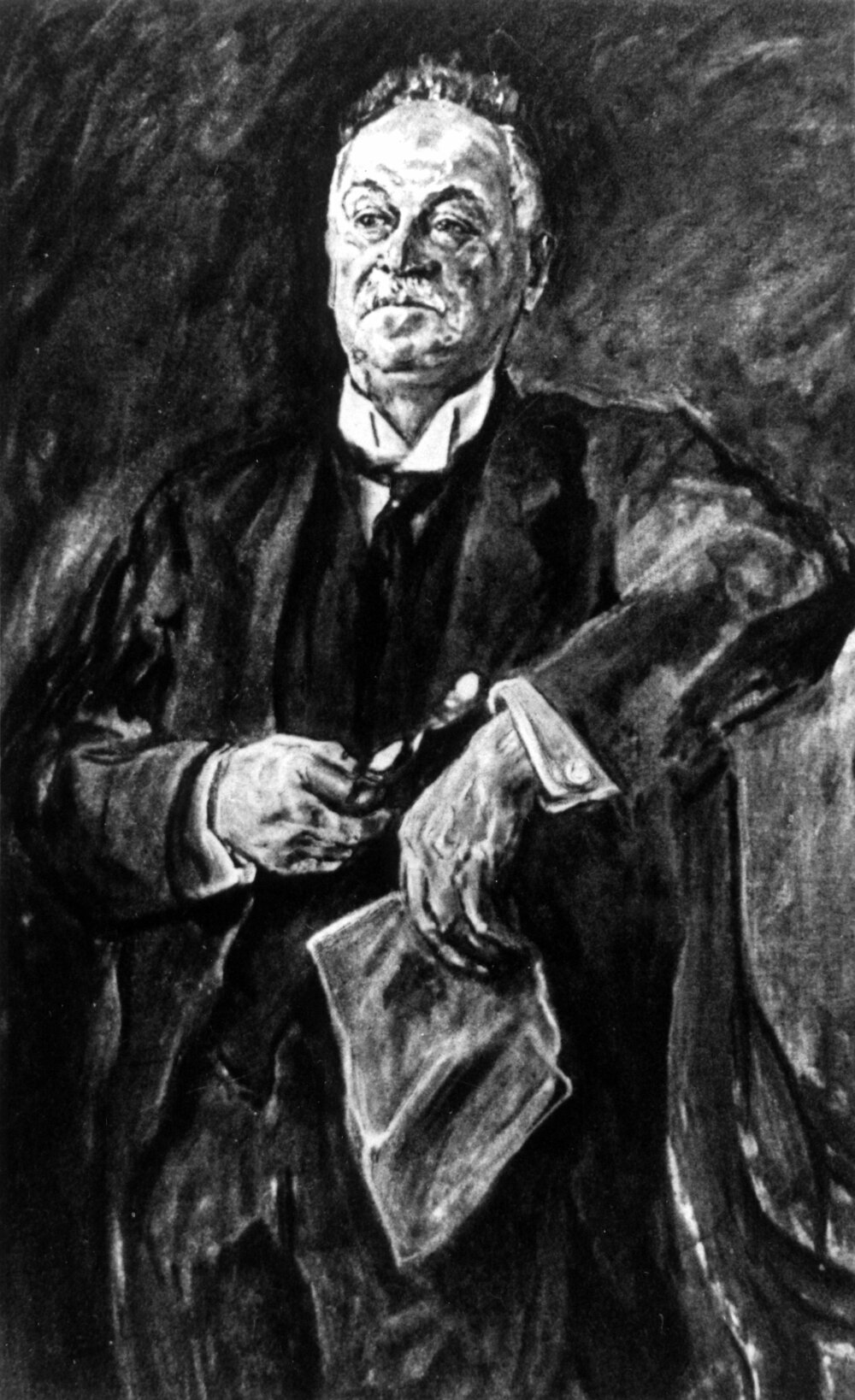-
Georg Arnhold
The German Georg Arnhold (1859-1926), the spiritual father of the visiting professorship at the Georg Eckert Institute and the man for whom it is named, was born in the town of Dessau, home of the Bauhaus in Saxony-Anhalt. He and his brother Max were the proprietors of the Bankhaus Gebrüder Arnhold (Arnhold Brothers) in Dresden. This family bank provided capital for burgeoning industrial firms, in particular in the brewery, ceramics and porcelain sectors. This business model met with considerable success, making the Bankhaus Gebrüder Arnhold, until its “Aryanization” in 1935 and 1938 respectively, one of the largest private banks in Germany. In 1931, the bank had taken over the long-standing Bankhaus S. Bleichröder.
Max and Georg Arnhold blended their economic success with support for the arts, culture and sciences; in their view, entrepreneurship and patronage always went hand in hand. They established a range of initiatives for the support of the common good and social welfare, including a pension fund for their employees and a non-denominational Social Foundation that Max Arnhold had established through his will. The latter supported non-profit organizations which awarded grants regardless of gender, religion, political opinion and ethnicity – an indication of the respect for individuality and difference which remains a family tradition to this day. The Arnholds also supported German youth services, the German aid and welfare organization Samariterbund, the Art Society of Saxony and the Dresden Gemäldegalerie, and helped make sporting facilities accessible to the general population by funding the Georg Arnhold Baths in 1926. Through the Foundation of Industrial Businesses in Saxony they provided support to the Technische Universität Dresden.
A committed pacifist, Georg Arnhold also supported the Germany Peace Society and was active in the Esperanto movement. He counted Nobel Peace Prize laureates Ludwig Quidde (1858-1941) and Bertha von Suttner (1843-1914) among his friends. At his home in Dresden, Georg Arnhold hosted evening lectures with scholars and artists such as Albert Einstein, Wassily Kandinsky, Walter Gropius and Gret Palucca. After his death in 1926, his four sons, Adolf, Heinrich, Hans and Kurt, took joint control of the bank until they were forced to relinquish it to the National Socialists, whereupon it was taken over by Dresdner Bank. Georg Arnhold’s son Heinrich died, after serial harassment at the hands of the National Socialists, in 1935 at the age of 50.
-
Henry A. Arnhold
![Henry_Arnhold_in_Braunschweig_2013 [Translate to English:] Foto von Henry Arnhold](data:,)
Henry Arnhold continued the philanthropic tradition of his family. He supported numerous charitable trusts and foundations and he was president of the Arnhold Foundation, which primarily promotes the causes of animal welfare, education and the arts. At the same time, he was a member of several institutions with an advisory role in American foreign policy and German-American cooperation. He had a special interest in academic scholarship; his commitment to promoting literacy and education expressed itself in his major support for the New School in New York, which many exiled German scholars, such as Hannah Arendt, had made their new home. At the New School he endowed the Willy Brandt Professorship in honor of its founder Alvin Johnson and initiated programs of cooperation between the New School for Social Research and the Technische Universität Dresden. In addition to an honorary degree from the New School for Social Research, he held, like his father and grandfather before him, an honorary senatorship of the Technische Universität Dresden.
Henry Arnhold described himself and his family as bridge builders between Germany and the United States. He was passionate about bringing together stakeholders from the realms of culture, the sciences and the business community. With the Georg Arnhold Program he wanted to promote international dialog and exchange of ideas as well as links between academia and civil society, thus contributing to strong and peaceable societies:
“Throughout his life my grandfather focused on the question of how societies can achieve lasting peace. There are indeed many parallels between his life’s work and that of the Georg Eckert Institute: With the values and the education that we teach our children and youth today, we are shaping tomorrow’s society.”
![Henry_Arnhold_in_Braunschweig_2013 [Translate to English:] Foto von Henry Arnhold](/fileadmin/_processed_/5/3/csm_Henry_Arnhold_in_Braunschweig_2013_5bfbca29ad.jpg)
